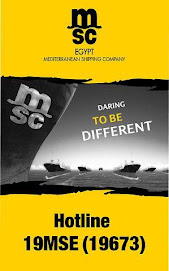
By Laila Afifi
Special to The 83rd
Did you watch the African Cup of Nations? Remember the match Egypt played against Sudan on the 25th of January, when Abutreika scored that amazing goal? Do you also remember him lifting his shirt? Remember getting curious about what the second shirt said? Do you remember finally reading the slogan: “Sympathize with Gaza”? Not knowing what he meant, did you run to the internet to find out, or did your curiosity just die?
While the majority (if not all) Egyptians were celebrating their wins in the African Cup, its neighboring country was facing a crisis. Nine days prior to the Egyptians’ victory, Israel had begun air raids on Gaza City killing over forty people within six days. The Palestinian militia retaliated with rockets. Four days into the constant firing, the Israeli army blockaded the border of Gaza; nothing went in, nothing came out. Immediately, Gaza went black as the power was cut off. Hospitals did not have medical supplies, and people walked around the streets with candles. Pressured by the Egyptian Minister of Foreign Affairs, Israel sent supplies that lasted 24 hours. 1.5 million Gazans were trapped in a ticking time bomb, desperate for the basic necessities to survive. When in desperation, one may make irrational decisions. On the 22nd of January, the wall bordering Gaza and Egypt was torn down. Two days later, the city of Al-Arish was flooded with over 50,000 Palestinians buying supplies and food to take back to Gaza.
Now back to the 25th of January. While Egypt was playing Sudan, Abutreika scored a goal, lifted his shirt to reveal a “Sympathize with Gaza” slogan, and then received a yellow card. That very same day thousands of protesters showed up on the University of Cairo’s grounds to support Palestine and hundreds of students had a silent demonstration on the Corniche in Alexandria.
After the match, Abutreika was verbally hammered about his position on the situation in Gaza. How could Abutreika take the side of the Palestinians? Perhaps it is not a matter of taking sides. We may find ourselves following our government’s stance, torn between our obligations to a previous peace treaty and our obligations to humanity. After all, what does it mean to support the Palestinians, or the Israelis? Upon what criteria will we base our decisions? If we claim it is a humanitarian cause, we will disrespect our past promises. If we choose to support the legal and sovereign nation, we will disrespect our obligations to humanity.
Although it is not always a matter of black and white, we must learn to recognize situations in which humanitarian relief is necessary. Abu Treika’s political showdown attracted the media, and many photos were taken. Everyone was in awe of this awareness campaign happening before their very eyes in no other than a soccer stadium. The internet was overflowing with his picture, yet three days later not one could be found. Questions arose about the reasons why the pictures were removed. This may be related to the reason Egypt was compelled to once again re-seal its border with Gaza. It may be the same reason there was an unsuccessful emergency Security Council meeting discussing the issue in Gaza (opposed by Israel and vetoed by the US). When a Danish cartoonist’s actions were supported by claims of freedom of speech, the very same people who supported this freedom restricted it when it was not in their favor.
Now where are we, Schutz students? Where are we in the midst of all this? We may be wrapped up in our protective little bubble, where our biggest worries are an “F” on an exam or whether a teacher likes us or not. Why don’t we fit in this political scheme? We should want to initiate change, want to take sides. We are indifferent to the idea that Abu Treika’s infamous pictures were removed from the Internet and about the situation in Gaza that we choose to ignore, but how can we change the world tomorrow if we do not know what it is today?








